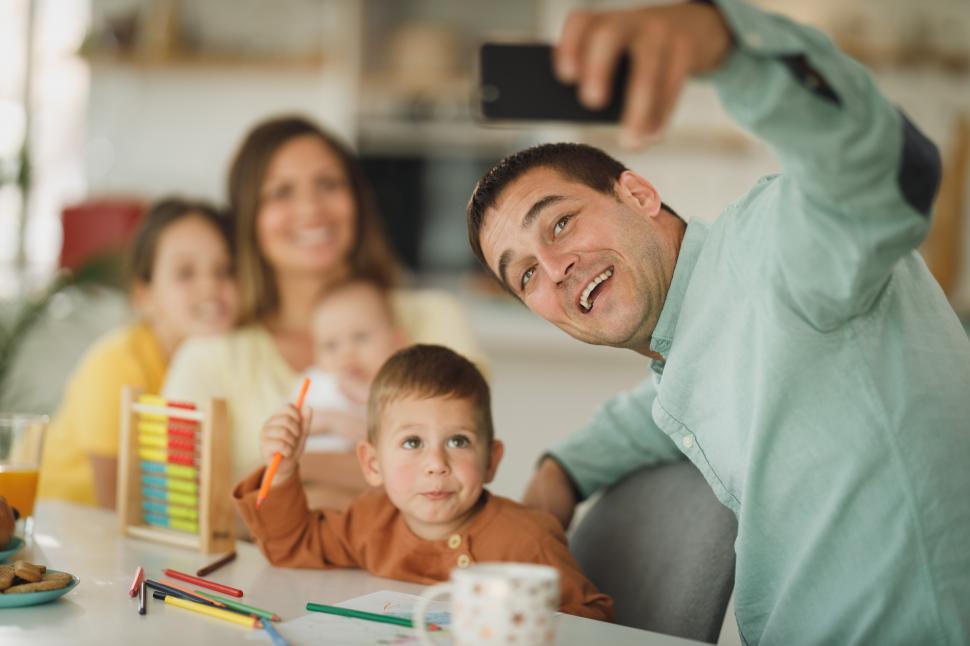
As our world becomes increasingly interconnected, social media platforms have become a staple of daily life, offering unprecedented opportunities to engage with communities, make new friends, and stay in touch with loved ones across vast distances. Popular networks like Facebook, Instagram, Snapchat, TikTok, and YouTube each have unique features that can enhance our social interactions. Sharing a moment or thought instantly can foster a sense of belonging and support, especially for those who find in-person connections challenging.
Social media can also play a crucial role in networking, allowing users to forge connections that can lead to professional opportunities and collaborations. For individuals in remote areas or those with mobility issues, these platforms can provide access to resources and connections that might otherwise be out of reach. They can also serve as an outlet for self-expression and creativity, offering users a space to showcase their talents and passions, which can be immensely fulfilling.
Negative impacts of social media
However, while social media holds the potential for positive impacts on our mental health, its darker side cannot be ignored. Evidence has emerged linking heavy social media use to increased feelings of anxiety, depression, and loneliness. The irony here is palpable; a tool designed to enhance connectivity can lead to feelings of isolation. This paradox is especially pronounced when individuals substitute online interactions for face-to-face connections. In-person contact is vital for triggering the hormones that alleviate stress and promote happiness. Without these essential interactions, users may find themselves feeling more lonely and disconnected despite being ‘connected’ online.

Research indicates that social media can amplify feelings of inadequacy. Users often compare their lives to the curated highlights they see on their feeds, leading to envy and dissatisfaction. It’s important to remember that people typically share only their best moments, creating a skewed perception of reality that can be damaging to self-esteem. Additionally, the culture of ‘likes’ and online validation can create a dependency on social media for self-worth and happiness, which can lead to compulsive checking and usage patterns that distract from real-life relationships and responsibilities.
However, social media can also amplify fears of missing out (FOMO), leading to anxiety and compulsive behaviors. The constant stream of updates can create a compulsion to check one’s phone repeatedly, often at the expense of more meaningful activities or relationships. Studies, such as one from the University of Pennsylvania, have shown that heavy use of platforms like Facebook and Instagram can increase feelings of loneliness. Conversely, reducing time spent on these platforms has been linked to improved overall well-being.
Cyberbullying represents another significant drawback of social media use, particularly among teens. The anonymity afforded by online interactions can encourage hurtful behavior, leaving lasting emotional scars. This toxic environment can worsen feelings of anxiety and depression, further complicating the mental health landscape.

The pervasive nature of social media platforms has made them incredibly addictive. They are designed to capture and hold our attention with endless notifications and updates, often leading to impulsive and excessive usage. This behavioral cycle can contribute to a negative feedback loop where feelings of loneliness and anxiety drive users to seek solace online, only to find that their mental health worsens as a result.
Social media acts as a double-edged sword in the realm of mental health. While it offers significant benefits in terms of connection and support, it also poses real risks that can heighten feelings of isolation and inadequacy. Understanding these dynamics is crucial for fostering healthier relationships with technology. As we navigate this complex landscape, recognizing the importance of real-world connections and being mindful of our social media habits can help mitigate its negative effects, allowing us to truly benefit from its connectivity without succumbing to its isolating pitfalls.
Find a balance
Thus, it becomes crucial to strike a balance in our social media use, recognizing when we might be leaning too heavily on these platforms at the expense of our mental health. The journey towards healthier social media habits starts with awareness and a commitment to fostering real-life interactions that nourish our well-being.
In the age of digital connectivity, finding a balance in social media use is essential for maintaining mental health. As we become more aware of the potential negative impacts of social media, it becomes increasingly important to adopt strategies that promote healthier usage. This entails not only understanding our habits but also actively working to create positive experiences online. Here are some effective strategies for fostering a more balanced relationship with social media.
One of the most straightforward approaches to healthier social media use is to set time limits. With the help of various apps, users can monitor how much time they spend on social media platforms. Once this information is available, it’s possible to establish realistic goals for reduction. For instance, if you’re currently spending an average of three hours a day on social media, consider gradually cutting that down to two hours, then one. By consciously limiting your usage, you can reclaim valuable time that can be spent on other fulfilling activities, such as reading, exercising, or connecting with friends face-to-face.
Equally important is the concept of mindful engagement. Rather than scrolling through feeds without intention, it helps to have a purpose for logging in. Are you wishing to connect with a certain friend? Are you looking for information on a particular topic? By approaching social media with a specific goal in mind, you can transform your time online into a more productive and rewarding experience. For example, if you’re feeling lonely, instead of mindlessly browsing, consider reaching out to a friend to chat or meet up.

Moreover, understanding the motivations behind your social media interaction can be enlightening. Ask yourself, are you using social media to escape boredom, or are you genuinely interested in the content you are consuming? This self-reflection can guide you in shifting your habits. If you find that you often log on simply out of habit, consider replacing social media with a new hobby or activity that excites you—a new book, a creative project, or a workout routine. The goal is to create space for genuine connections and meaningful experiences, both online and offline.
Beyond personal reflections, actively curating your social media feeds can significantly enhance your online experience. This involves unfollowing accounts that contribute to feelings of inadequacy or negative comparisons. Instead, surround yourself with content that inspires, uplifts, and supports your well-being. Follow accounts that promote positivity, share educational content, or connect you with communities that resonate with your interests. By engaging with uplifting content, you can reduce feelings of envy and dissatisfaction, leading to a healthier mindset.
Integrating offline interactions into your routine is another essential strategy. While social media can provide a sense of connection, it is crucial not to let it replace in-person relationships. Schedule regular meet-ups with friends and family, engage in local community activities, or join clubs that align with your interests. These real-life interactions can significantly improve mood, reduce feelings of isolation, and enhance overall mental health. Engaging with others in person fosters genuine connections that social media cannot replicate.
Additionally, practicing digital detoxes can be incredibly beneficial. Setting aside specific times during the week to unplug completely from social media provides a refreshing break from the constant stream of information. Consider dedicating a weekend or even a single day to disconnecting from all social media platforms. This break can help you reconnect with yourself and engage in activities that bring joy and fulfillment without the distraction of online notifications.
It’s important to recognize that social media can indeed be a source of support and connection when used mindfully. Engaging with online communities that focus on mental health, personal growth, or shared interests can provide valuable resources and encouragement. Whether through forums, support groups, or creative outlets, these interactions can foster a sense of belonging and understanding that can counteract loneliness.
When using social media, it’s also important to practice self-compassion. It’s easy to fall into the trap of comparison when scrolling through carefully curated posts of others’ lives. Understanding that everyone has their struggles and recognizing that social media often showcases highlights rather than the complete picture can foster a healthier perspective. Acknowledge your feelings of inadequacy without judgment and remind yourself that it’s okay to have ups and downs in life.
Finally, seeking professional help when needed can provide a crucial support system. If you find that your social media use is heavily impacting your mental health, consider reaching out to a mental health professional. They can help you explore underlying issues and develop coping strategies that work for you. Online therapy services can also provide a convenient option for those who may feel isolated or unable to access traditional therapy.
Social media offers great opportunities for community and connection, but it can also pose risks to mental health. By adopting healthy usage techniques, people can improve their online experiences and reduce potential negative impacts. The first steps toward developing a healthy relationship with social media are knowledge, intention, and a commitment to fostering in-person relationships that promote mental health. Let’s embrace the potential for deep connection while being mindful of our habits, allowing social media to enrich rather than control our lives. By actively participating in creating a positive digital environment, we can ensure it connects and uplifts us.
Related posts:
Social Media and Mental Health: Social Media Addiction
Just How Harmful Is Social Media? Our Experts Weigh-In.
Teens and social media use: What’s the impact?





